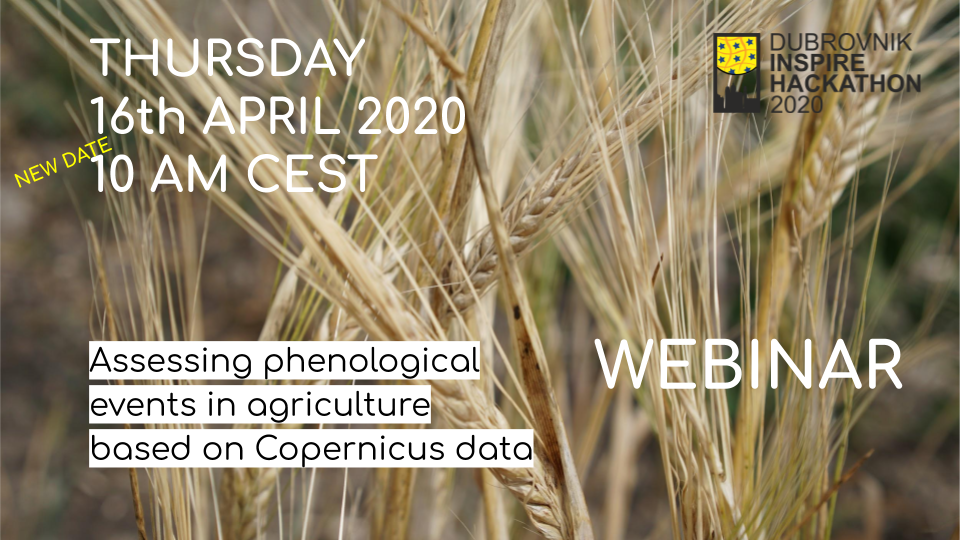| Hana Kubickova

Last week, the webinar on Assessing phenological events in agriculture based on Copernicus data was interrupted due to overloaded webinar platform. Fortunately, our presenters are very kind to repeat this webinar for you on Thursday and you are cordially invited!
DURING THIS FREE WEBINAR YOU WILL LEARN:
- Phenology in agriculture
- Phenology relevant data (RS/Copernicus data, other sources of data): definition and availability. Radar and optical data
- New data analysis methods such as deep learning algorithms
What: Monitoring phenology along the growing season on a large scale is crucial for all actors of the agri-food chain (farmers, agri-food industry, insurance companies, public administration and policy makers) but is still challenging. Different possibilities to improve the assessment of agricultural crop phenology can be identified and this webinar we will discuss some ways of addressing these challenges. The complementary use of different sources of time-series data (remote sensing, ground truth data,…etc .), modern algorithms/methods and computing resources to analyse it, allows a near real time (NRT) monitoring of crop phenological events for all actors in the agri-food chain. The use of radar data (S1 and possibly S3 images) could provide valuable information on crop phenology over areas often covered by the clouds. Availability of «new» sources of geo-located data sets (meteorological, dash-cams, etc ..) allows to enlarge ground truth sample to calibrate and validate the proposed algorithms. Deep learning algorithms designed for time-series analysis used on high power computing systems, allows to improve the monitoring of phenological events in agriculture.
Why: Availability of Copernicus data. Processing large amounts of image data such as those provided by Copernicus is a computationally demanding task. Computing capabilities have considerably increased over the last years so as allowing the processing with complex algorithms of these data.
Who (is the webinar for): Academia & Research, Researchers, students, people interested in time-series datasets and high-dimensional function modelling via deep learning.
If you want to learn more, please register for the livestream HERE!
